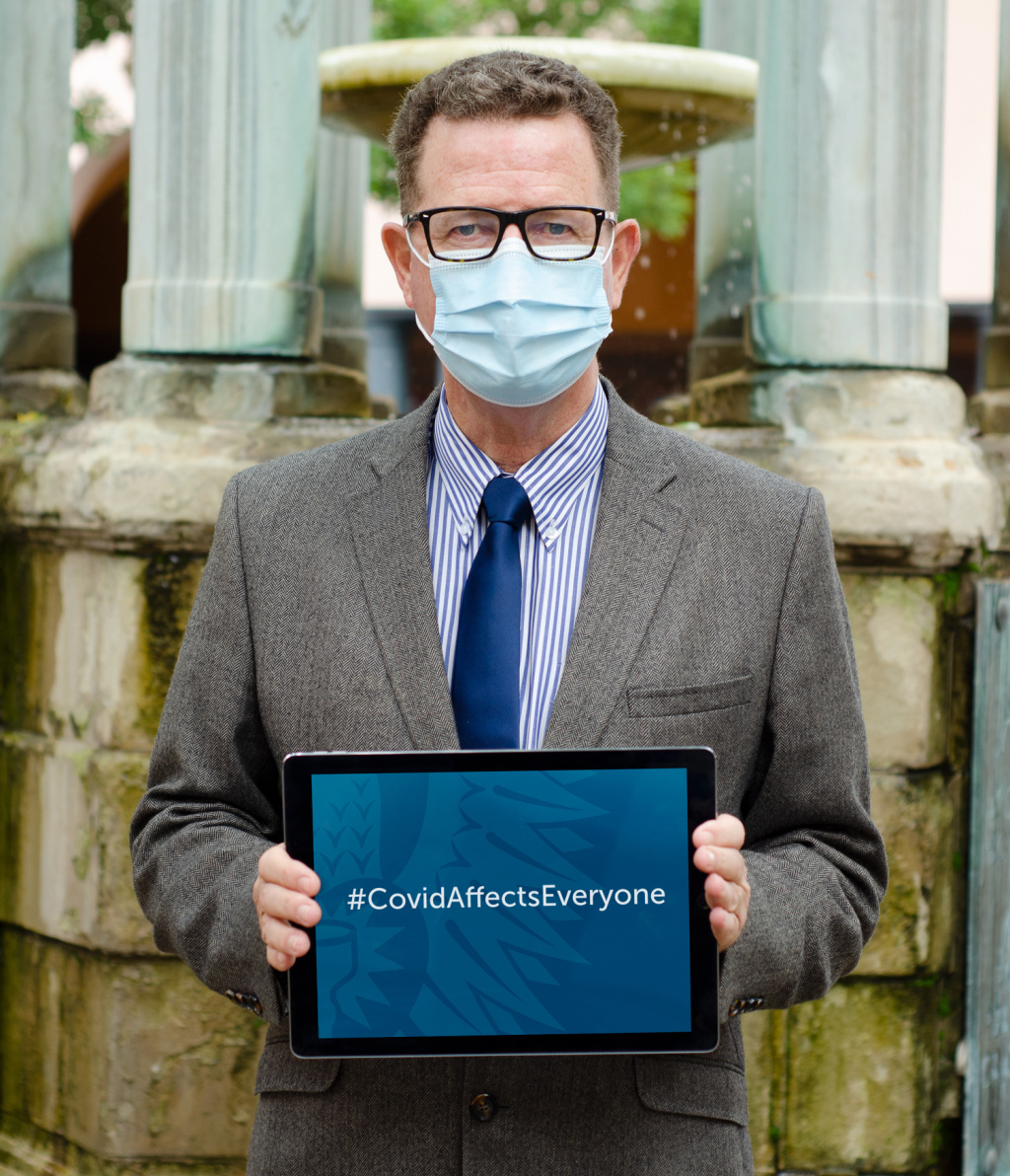As St John's College makes headlines, Stuart West responds to the dangers of misleading, and sometimes inaccurate, reporting in the media - and on social media - regarding schools and COVID-19.
South Africa is on edge. Schools have spent the past 400 days navigating the most challenging and bewildering times. And in a climate of fear, misinformation is rife.
Just this week we have seen an “SOS” sent from Health Minister Zweli Mkhize to provinces, claiming that “for all intents and purposes, we are in a third wave” of COVID-19 infections, followed quickly by a communication from the National Department of Health offering reassurance and denying this claim.
At St John’s College, after we detected eleven cases of COVID-19 across the breadth of our school, we quickly saw sensationalist and inaccurate articles appear, with headlines implying a number of infections many times higher and an article falsely claiming that we had temporarily closed our school.
These reports are, naturally, leapt upon by parents, students, staff and the broader community, and circulated widely and quickly. This creates an environment of speculation and alarmism, perpetuated on social media messaging groups, which causes needless fear and hampers our ability to effectively manage the expectations, anxieties and genuine need for reassurance within our school community.
We are concerned that continued inaccurate reporting and the dissemination of inaccurate and sensationalist information might cause other schools to hold back on reporting cases quickly and transparently. We have enjoyed an excellent and constructive relationship with the provincial departments of Education and Health in the past week and they have appreciated our transparent handling and reporting of our positive cases. The media’s handling of this information has certainly hampered effective responses on all fronts. As we have learnt, the effectiveness of individual responses has a profound impact on our collective safety.
The facts are as follows: Nine senior students, one junior student and one staff member tested positive at St John’s College in the past week. As a school we immediately conducted contact tracing and tested close contacts, all of which returned a negative result. Those who are infected were isolated and any close contacts quarantined.
St John’s College has not closed and the academic programme continues. We shifted online those classes where there is even a remote chance of undiscovered infections as a precautionary measure. We are, by this stage, adept at shifting between remote and in-person teaching. Our grades 11s, 12s and our Sixth Form centre will continue their academic programme online until Monday 17 May. In consultation with the Department of Education, we have also suspended all afternoon sport and other extramural activities until 24 May.
It has been more than 400 days since the first COVID-19 lockdown was declared in South Africa. St John’s College looks after 1 526 students and over 400 teachers, coaches, administrative and support staff. We hold a deep responsibility for those in our care. For more than 400 days the safety of those in our care has been threatened.
Any large organisation, and particularly one like a school which brings together so many active, invested stakeholders, has had to make a series of massively consequential decisions over the past 400 days to ensure the safety of its members. These decisions are hard enough without the complication of misinformation, speculation and alarmism.
Over this time, we have worked exceptionally hard to combat the COVID-19 threat. We have made sacrifices and compromises that we would never have imagined necessary to ensure two priorities: the safety of our students and staff, and the most minimal disruption possible to our academic programme.
We are a well-resourced school and have used those resources to build a COVID-19 Management Team and effective protocols of which we are confident and proud. In their report on St John’s College this week, the Departments of Health and Basic Education applauded our COVID-19 Management Team for the excellent protocols we have in place and our handling of COVID-19 cases at the school.
Inaccurate and unfounded reports do nothing to help us do what is necessary to keep those in our care safe. Instead, they compound the sense of helplessness and fear which threatens to overwhelm us. Teachers and students have borne an extraordinary burden over the past 400 days. Being careless with the facts exacts a cruel and needless emotional toll on the people who are affected.
I would like to appeal to media houses to verify their information before making it public and to realise the threat that inaccurate, misleading or alarmist reporting poses to our ability to keep those in our care safe. I would like all schools to have the assurance that their reporting to and engagement with the Departments of Health and Education will be appreciated and treated with the respect it deserves. Lastly, I appeal to parents and families of students to refrain from sharing information that has not been verified by schools and to manage the risk of student infection closely in the evenings and on weekends.
As South Africa nears a presumptive third wave of COVID-19 infections we are all going to have to make painful decisions, sacrifices and compromises. After 400 days, we know too well how difficult this will be. But we have also learnt, over the past 400 days, the lengths we will go to protect those in our care and the depths of our responsibility to one another.
For the sake of those in our care, let that responsibility begin with a responsibility to truth.
- Stuart West, Executive Headmaster

